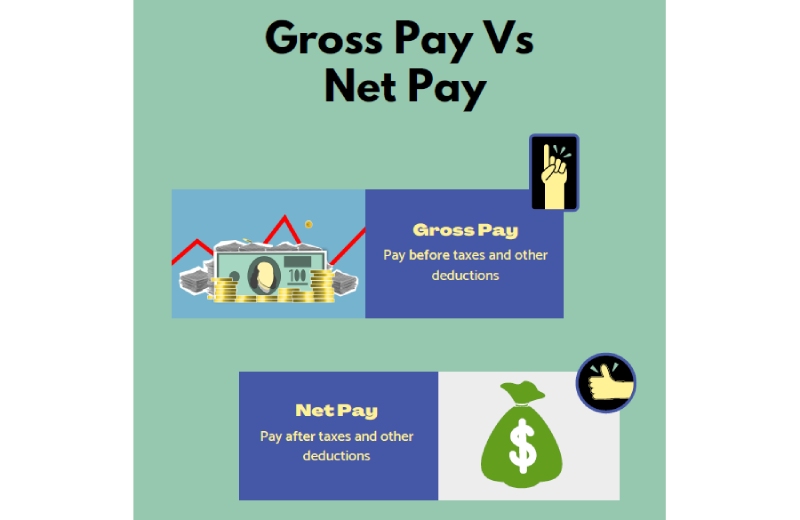Business
Things to Know about Net Pay: How it Differs from Gross Pay, How to Calculate it, and How it Works

It’s tax season again. It’s simple to become confused with all the forms and applications you have to fill out.
Whether this is your first time filing or you’ve been doing it for years, you should record your total income for the tax year.
This article explains net pay, including what it is, how to calculate it, and how it differs from gross pay.
What is net pay?
The money that employees receive after payroll deductions are deducted from their gross pay is known as their net pay. Taxes, benefits, wage garnishments, and other deductions are among them.
Net pay is, to put it simply, the amount of money you keep after taxes.
For example, if a person receives $1,200 a week after deductions of $160, their weekly net pay will be $1,040.
What is gross pay?
Before payroll deductions, an employee’s gross pay is their total earned wages.
What is net income?
Net income, sometimes referred to as net earnings, is a company’s total revenue less its operating expenses. This covers the price of the goods as well as depreciation, taxes, interest, running costs, and selling, general, and administrative expenses.
Profitability is determined by net income.
For employees, what you need to know about net pay
What you take home is your net pay. It’s not a guarantee that you will receive the same net pay as someone who earns the same as you. Certain taxes, benefits, wage garnishments, and other deductions have an impact on net pay.
A person’s net pay may differ from yours depending on a variety of factors, such as their filing status, tax credits, children and dependents, and marital status.
For employers, what you need to know about net pay
Regarding your employees’ net pay, employers have a few things to think about. For example, employer FICA taxes, benefits, and contributions to retirement plans are subtracted from an employee’s net pay before they are received.
Furthermore, net pay is the amount an employee takes home from their job rather than the amount it costs to employ them.
Monitoring your employees’ gross and net pay is essential for managing payroll taxes. Should there be any discrepancies between the two, you might wish to double-check the data. Penalties may follow if there are any problems.
-

 Business4 weeks ago
Business4 weeks agoWhere There Is a Will, There Is a Way: Hayson Tasher and the New Year, New Me Mindset in Security Entrepreneurship
-

 Business4 weeks ago
Business4 weeks agoAlain Khoueiry and His Mission to Present Kazakhstan as a Land of Opportunity and Wonder
-

 Health4 weeks ago
Health4 weeks agoMy Juno Health Enterprise Partnerships Signal Shift From Claims Management to Utilization Prevention
-

 Health3 weeks ago
Health3 weeks agoShame, Trauma, and the Mind-Body Connection: How Dr. Karina Menali’s Kai Wellness Frames Emotional Healing as Integral to Physical Health
-

 Music4 weeks ago
Music4 weeks agoBTS will Return With ‘BTS THE COMEBACK LIVE | ARIRANG’ Concert and New Documentary on Netflix
-

 Tech3 weeks ago
Tech3 weeks agoBobby Atkins, Stonington Connecticut: How Effective Material Handling Supports On-Time Manufacturing Output
-

 Business3 weeks ago
Business3 weeks agoStephen Straz: Building Success Through Business Leadership
-

 Startup2 weeks ago
Startup2 weeks agoDino Crnalic Discusses From Startup to 100 Employees: Leadership Lessons That Matter
























